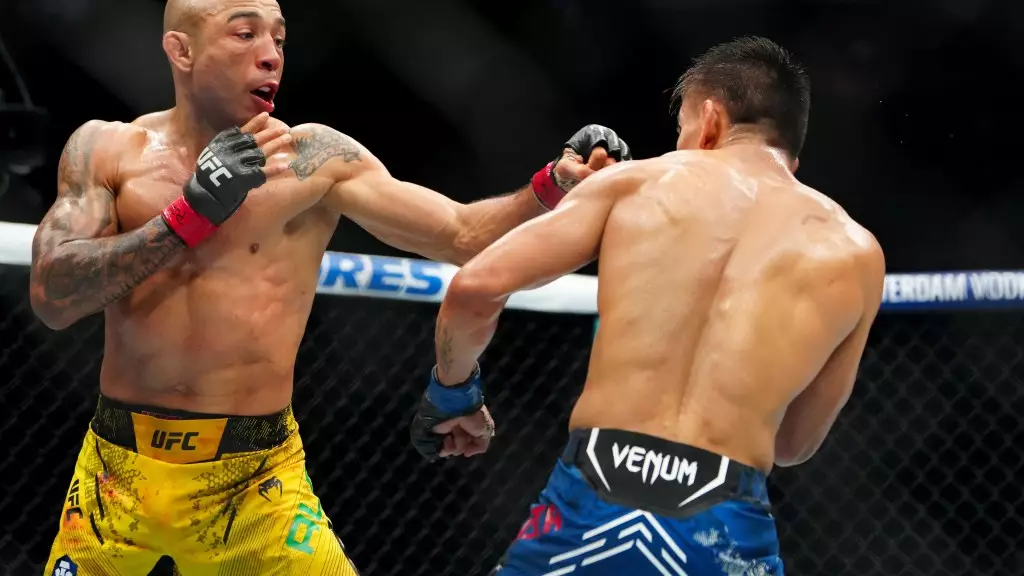In the world of MMA, strategy can be as vital as skill, and this was evidently highlighted in the recent fight between Jose Aldo and Mario Bautista at UFC 307. Aldo, a seasoned fighter known for his explosive striking and elite grappling, faced Bautista in a high-stakes matchup that ultimately ended in a split decision. Aldo’s inability to adapt his strategy in critical moments led to questions about his fight IQ, especially when he struggled to break away from Bautista’s clinch against the cage during the final round. This bout raises essential considerations regarding tactical adaptability and psychological resilience.
T.J. Dillashaw, a former bantamweight champion, openly criticized Aldo’s failure to disengage from the cage during the match. His remarks suggest that Aldo, despite being a highly experienced fighter, showed signs of complacency or a lack of urgency. This notion of complacency can be detrimental in a sport where being reactive can often lead to a swing in favor of the opponent. For a fighter of Aldo’s caliber, one would expect a more proactive approach, particularly as the fight neared its conclusion. The situation presents a bigger issue—do fighters become too reliant on their past experiences, leading to a fixation on conserving energy rather than seizing control of the fight?
When a fighter, especially one with the prestige of Aldo, finds himself in a grappling exchange, it is crucial to recognize the psychological aspect at play. Dillashaw noted that Aldo seemed hesitant to engage fully, potentially stemming from an underlying fear of exhaustion. This situational hesitance can create a psychological barrier that not only affects the fighter’s performance but also shapes how judges interpret the action within the Octagon. In combat sports, where mental fortitude is as critical as physical skill, Aldo’s reluctance to risk getting tired in favor of maintaining control reveals a significant miscalculation in strategy.
Dillashaw’s take on the situation highlights an important aspect of MMA — the influence of judges’ perspectives on fight outcomes. Aldo remained pinned against the cage for substantial periods, which may have swayed the judges’ minds regarding Bautista’s “control” of the fight. This theme of control against cage positions can distort the fight narrative, as spectators may remember those tense, still moments more vividly than the strikes landed. Aldo’s inability to escape this unfavorable position turned the tide and allowed Bautista to earn a controversial split decision.
For Jose Aldo, this loss serves as a crucial moment for reflection. As a veteran of the sport, he must now scrutinize his strategies and mental approach in high-pressure fights, ensuring he keeps evolving rather than succumbing to past laurels. The blend of physical and mental adaptability is paramount for any fighter reaching the apex of their career. The MMA landscape is unforgiving, and the ability to adjust tactics mid-fight can be the difference between victory and defeat. Moving forward, Aldo must learn from this setback, not only to enhance his own game but to retain the respect he has fought so hard to achieve in the octagon.

